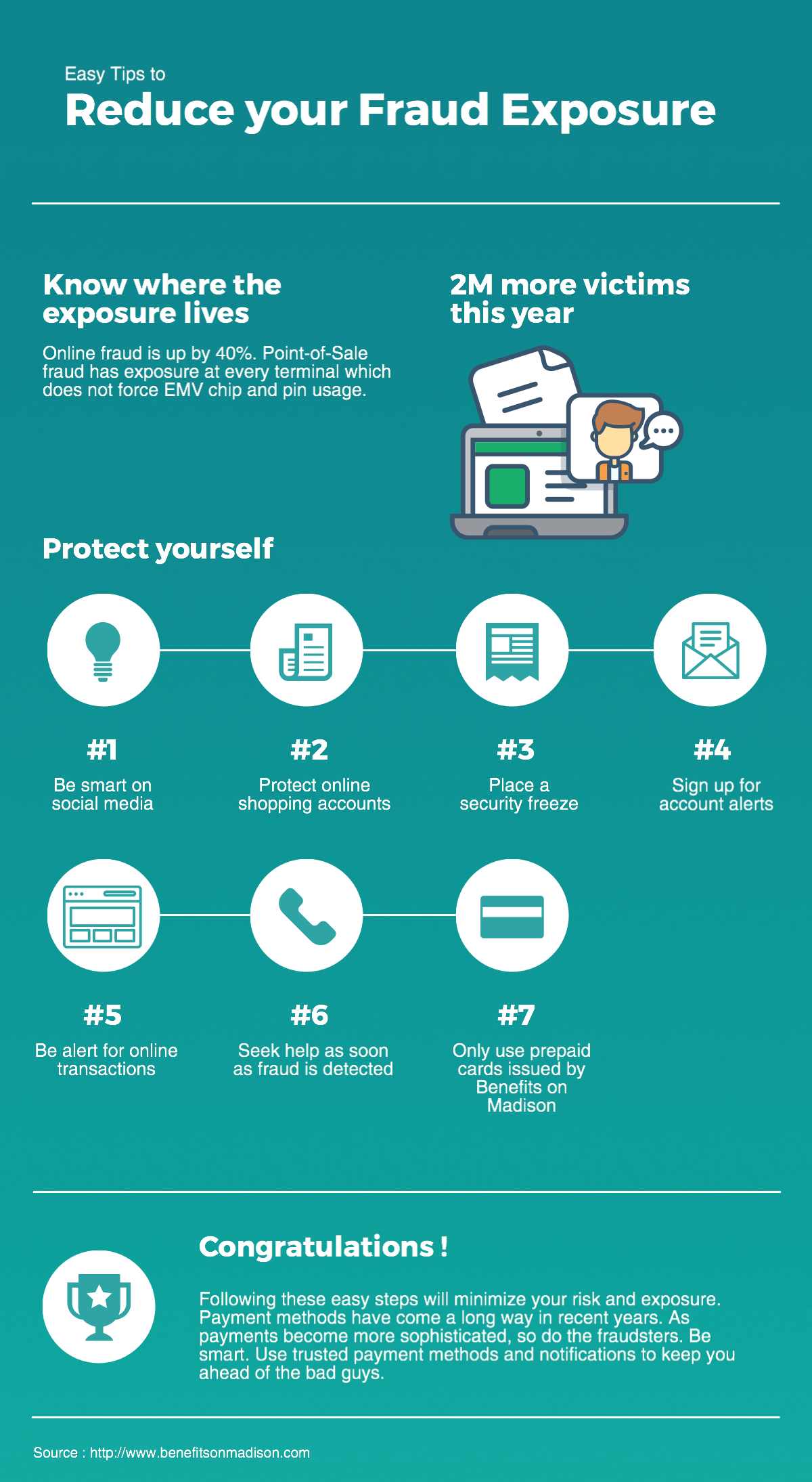When you open your mailbox, you have a brand new shiny plastic card from your credit card company. You notice it has a little chip embedded into the card. You have an extra feeling of security against fraud now. While the EMV chip may help to protect you against fraud at EMV terminals, does it actually give you the protection it promises?
According to a new study from research firm Javelin Strategy & Research, instances of identity theft and credit card fraud climbed to record levels last year.
But why?
According to the study, the instances of card-not-present fraud has increased by 40%. It makes sense when you think about it. If you make an online purchase, there is no chip reader or machine to verify your pin. So, if the fraudsters have captured your card data, there is nothing preventing them from using your card.
Besides, not all point-of-sale merchants have converted over to EMV enabled machines. The fraudsters know to shop in retail stores that do not require pin transactions. Until this gap is closed, POS is also a risky place for potential card theft.
The following tips will reduce your risk of card fraud:
1. Be smart on social media – Social media is a fun place to stay connected with friends and also meet new ones, but be smart
about it. You may unwittingly reveal personal data to people with poor intentions. Verify your privacy settings. Make sure only those you know and trust can access your information.
2. Protect online shopping accounts – We have been told time and time again to always use unique passwords and change them frequently. Did you know that if a major online retailer is hacked, your email address and password combo might be attempted at other retailers? If they gain access new purchases might be made without your knowledge. Change passwords often and use 2-factor authentication when available.
3. Place a security freeze – All three of the major credit bureaus allow you to put a freeze on your credit reporting. This will disallow new creditors to pull your information. If you are not planning to open up new credit accounts, consider this.
4. Sign up for account alerts – Many financial institutions now allow you to set up notifications (via text message, email, or app push notifications) to notify you immediately if your accounts are accessed. Many even allow you to set notifications based on the parameters you determine. Be in control of your financial data by setting up notifications with your institutions.
5. Be alert for online transactions – Consider setting up notifications for all card-not-present transactions. Ecommerce moves fast, so the quicker you become aware of purchases you did not initiate, the quicker you can shut it down.
6. Seek help as soon as fraud is detected – The quicker a financial institution or card issuer is notified of fraud, the sooner they can act to limit damage. Early notification will help limit the liability of a victim, and provide more time for law enforcement to catch the fraudsters in the act.
7. Only use prepaid cards issued by Benefits on Madison – Finally, prepaid cards are like having digital cash. Most prepaid card providers leave the cardholder carrying the bag in the case of losses. Benefits on Madison is the only prepaid card issuer with World SecureCash on every card. World SecureCash—designed in conjunction with a worldwide insurance carrier—covers prepaid cards exposed to fraud. Carry the only prepaid cards that take the risk away from the cardholder.
Payment methods have come a long way in recent years. As payments become more sophisticated, so do the fraudsters. Be smart. Use trusted payment methods and notifications to keep you ahead of the bad guys.



Comments are closed.